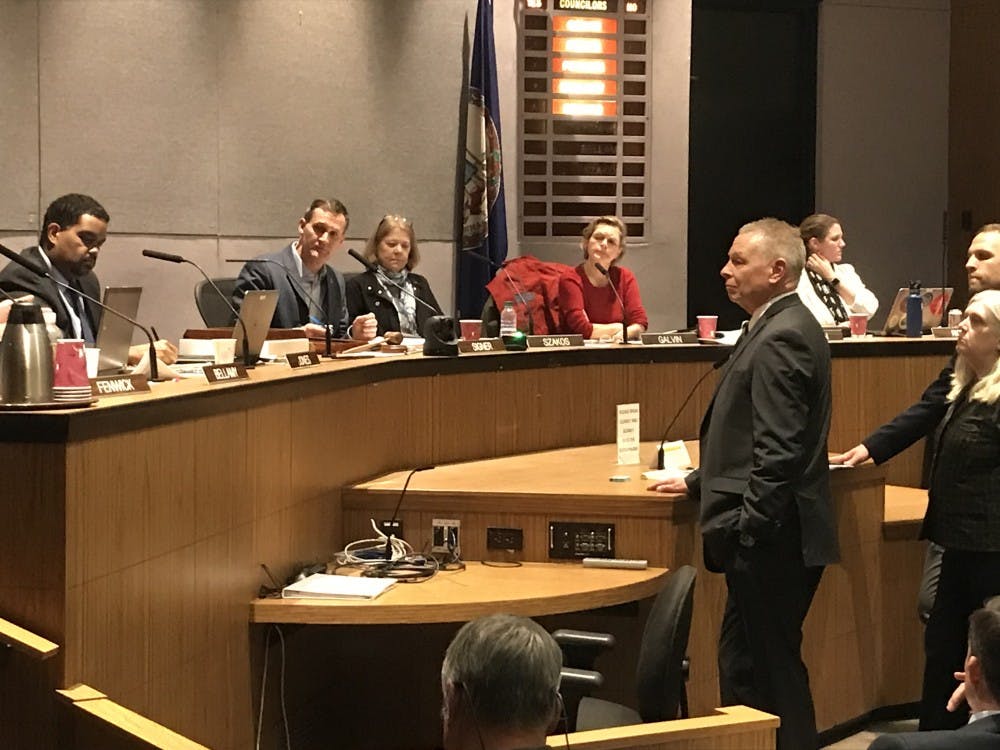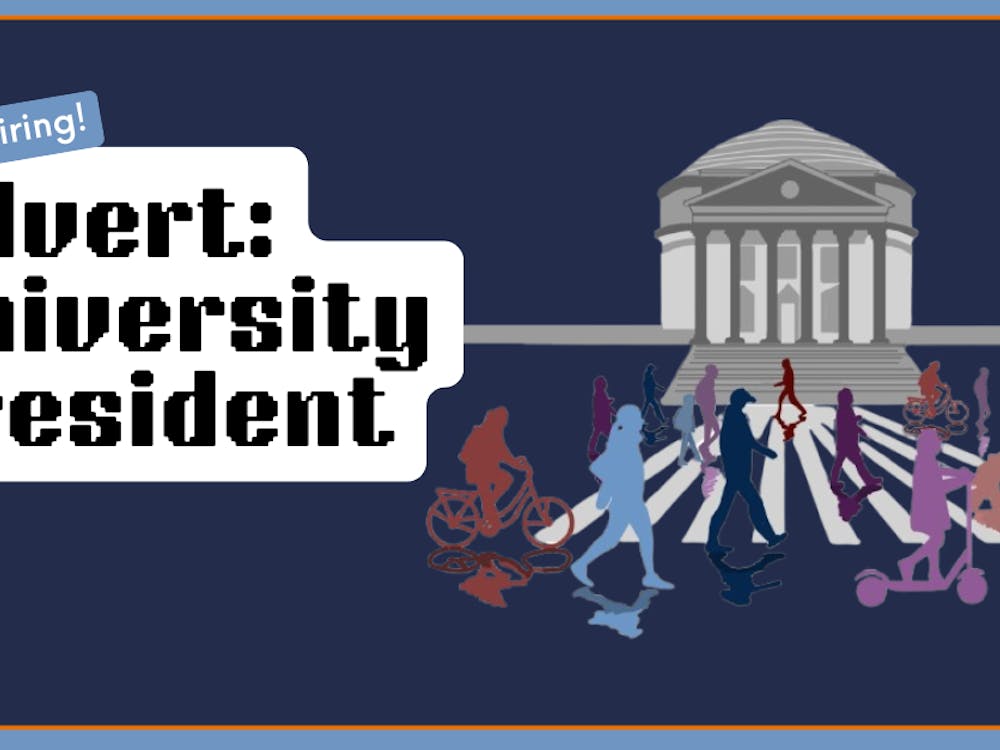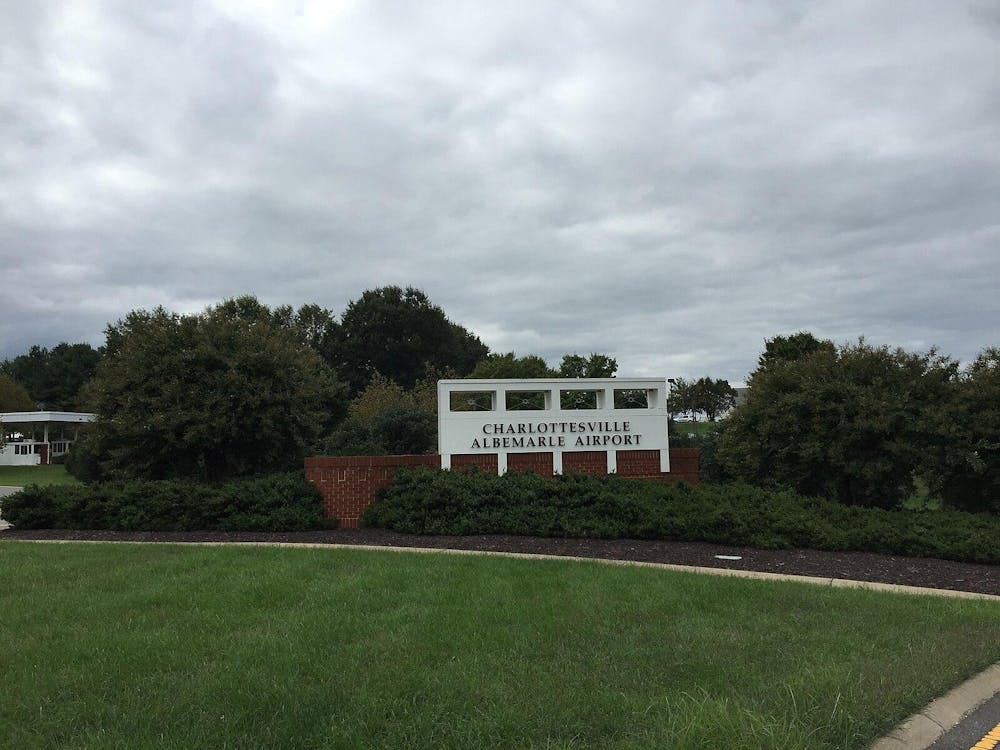The Charlottesville City Council held a discussion Monday evening about a series of revisions to the city’s standard operating procedures that govern demonstrations and special events.
The revisions were originally instituted by City Manager Maurice Jones earlier this month after consultation from the K & L Gates law firm. At Monday’s meeting, the Council started to consider whether to codify the changes into a city ordinance and also offered potential changes based on public comment to the proposed guidelines.
The revisions serve as a response to the white supremacist events in Charlottesville this past summer, including the deadly ‘Unite the Right’ rally Aug. 12, in which organizer Jason Kessler was able to obtain a permit for the rally in Emancipation Park.
The city had attempted to move the ‘Unite the Right’ rally to McIntire Park due to safety concerns in the days before Aug. 12, but an injunction by a federal judge allowed the rally to continue as planned in Emancipation Park.
The revisions come immediately after a number of permits for rallies to be held next summer in Charlottesville parks were denied by the city, including a permit application submitted by Kessler to hold a one-year anniversary Unite the Right rally in Emancipation Park Aug. 12, 2018.
Kessler was present at Monday’s meeting and spoke in defense of this past summer’s rally, stating that the city’s response to the event resulted in violence rather than the actions of rally demonstrators.
Kessler was interrupted multiple times by audience members shouting “Blood on your hands” and other insults that referenced his role in the ‘Unite the Right’ rally. Council members struggled to maintain order during Kessler’s comments and were often drowned out by the audience.
“This City Council was more interested in shutting down my free speech rights than they were about public safety,” Kessler said. “I'm not here for Nazis, I’m here for white people. I'm here for the forgotten man and woman. Just to stand up and say white people have a right to exist, we have a right to our heritage … we have to stand up for white people as a group … standing up for white people is not hate speech.”
Later in the meeting, City Attorney Craig Brown and representatives from the K & L Gates law firm presented the permitting process revisions to the Council, including measures to regulate the number of attendees allowed at permitted events and the location at which they are held.
The revisions added a list of “prohibited items” into the city permitting regulations, barring items such as open flames and other objects considered to be “implements of riot” and “any items capable of inflicting bodily harm when these items are held or used in an intimidating, threatening, dangerous or harmful manner.”
The new regulations also include provisions which require events or demonstrations to be permitted if more than 10 individuals are anticipated to be in attendance unless the event is a “spontaneous demonstration.”
Under the revisions, the city manager would also exercise greater authority in the approval, denial or modification of the conditions of a potential permit if the applicant did not provide additional information concerning the intended purpose of the event if requested.
Brown — who announced on Tuesday his decision to leave the position of City Attorney in Charlottesville next month — said the new regulations were aimed at promoting public safety and order at future events rather than preventing demonstrations from occurring in Charlottesville.
“These SOPs [Standard Operating Procedures] will not prevent the violence which recently transpired in Charlottesville, that's not what they are designed to do, they can’t do that,” Brown said. “The purposes of these regulations … is the preservation of order and safety and the right of persons to organize events.”
Brown also said the regulations are a direct result of former U.S. Attorney Tim Heaphy’s recently completed independent review of the city’s response to and management of this year’s white nationalist demonstrations.
During the public comment portion of the meeting, attorney Jeffrey Fogel expressed his concerns about the lack of public engagement around the newly adopted regulations.
“As the memo points out, [permit revisions] been adopted without any prior community engagement,” Fogel said. “What’s been done here … is to make it as onerous as conceivable to get a permit in this city. From now on you will need a permit if 10 people are gathering. We will not be allowed to have a candlelit procession as we did a couple of months ago.”
Fogel added that the newly adopted regulations to the permitting process would ultimately harm community members.
“The people who are going to suffer, the free speech rights that are going to suffer, are right here in our community — it's not going to be the Nazis,” Fogel said. “Something bad happened and you come back with a proposal that may even be worse — don't shut down the First Amendment because of a couple of a—holes.”
In response to Fogel’s concerns, the Council suggested a modification to the permitting revisions which would allow for the use of handheld candles at permitted events. The proposed change will likely be implemented by Jones in his role as city manager.
Councilor Kristin Szakos said she supported allowing handheld candles at permitted events as they provide an important mode of expression for the community.
“I think that there are often times … where candlelight vigils are held and are very moving and meaningful to folks,” Szakos said. “I have never seen candles used in a threatening manner, so even if people who are threatening through their speech are holding candles, I don't know that it makes it more threatening like torches do.”
“It would be robbing our community of a form of expression which we use from time to time,” Szakos added. “I would hate for us to lose the right to do that.”
The Council did not vote on the regulations Monday evening and decided to hold a public hearing at a future meeting on the permitting regulations.







